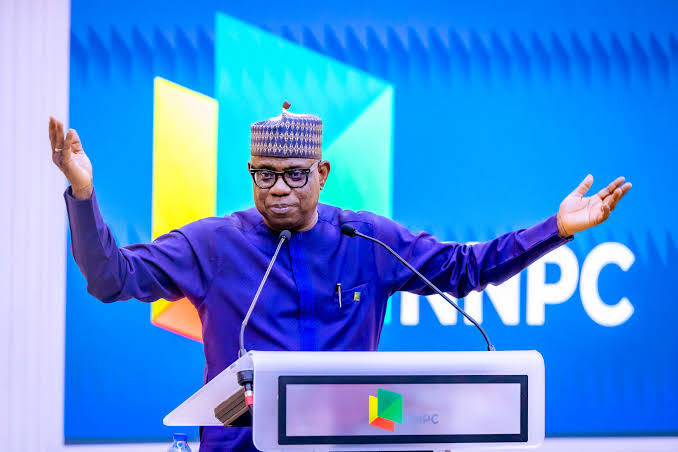Group Chief Executive Officer of the Nigeria National Petroleum Company (NNPC) Ltd, Bayo Ojulari, has resumed work.
The NNPC boss who was sighted at an event organised by the Society of Petroleum Engineers (Nigerian Council) in Lagos on Monday.
Recall that there have been speculations on the sack of the GCEO by the presidency under controversial circumstances
It was said he was forced to resign over alleged controversies involving past business dealings with a politically connected businessman, served both as a public statement of continuity and a reaffirmation of his vision for the Nigerian energy sector.
While he did not address the recent allegations directly, his presence and tone conveyed stability and resolve.
On August 3, TheCable reported that Ojulari’s position was under review following internal concerns at the Presidency over some past deals involving Atiku Abubakar’s son-in-law, Gbolahan Obanikoro.
The article cited sources suggesting his fate hung “in the balance,” adding to the uncertainty that had shadowed the NNPC leadership over the past few weeks.
Despite the swirling controversies, Ojulari delivered a virtual presentation that spanned across topics from energy justice to geopolitical capital flows.
Ojulari made it clear that Africa must define its energy transition path on its own terms.
“The energy transition must not be imposed. It must be negotiated, contextualised, and it must be just,” he stated, emphasizing the need for natural gas to remain a key transitional fuel for the continent.
“We cannot ignore the reality that millions in Africa still lack basic energy access,” he said. “Our approach must be grounded in energy justice, providing access while transitioning responsibly.”
Ojulari’s remarks laid out an ambitious, interconnected vision for the Nigerian energy sector, one that combines traditional oil and gas production with emerging technologies like carbon capture, hydrogen, AI-enabled exploration, and compressed natural gas (CNG) distribution.
He described the oil and gas sector not as a “sunset industry,” but as a cornerstone of “a sustainable, inclusive, and resilient energy future.”
“For Nigeria, and for Africa, energy is a means of strengthening cross-sector and cross-border alliances, securing access to reliable and affordable investment — not just for oil and gas, but for the emerging technologies that will define the next chapter of our industry,” Ojulari said.
